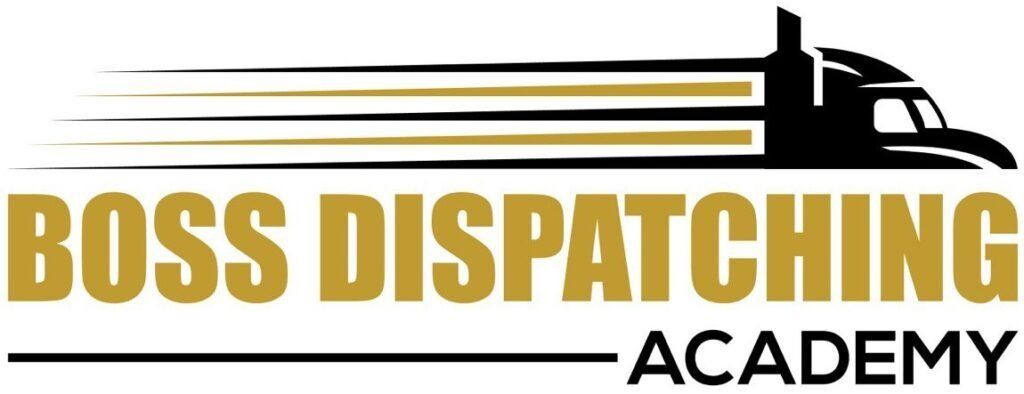Learn In The Comfort Of Your Home
A 100% Home-based Program
1-on-1 Mentorship
Professional Certification
Unlimited Access
Course Packages Overview
HOW THE COURSE WORKS?
With any purchase, ALL students get 1 YEAR of access to premium load boards! (Click Here)
Load and Truck Searching
Load and Truck Posting
Credit Scores
Full Credit Reports
Days to Pay
Broker Authority, Bond, and Insurance Info
Deadhead miles and Trip miles
Turn by turn truck-specific routing
Email alerts
Custom Columns and Categories
Improved Alert Scheduling
Private Loads
Improved Load Filtering
Private Load Information
Store and Send Documents
Text Alerts
Notes
The deal is Only for a limited time, ALL students get 1 YEAR of access to the premium loadboard!
Dont miss out on this exclusive offer to gain hands-on experience, accelerate yourlearning, and kickstart your career in the industry. Join us today and take the first steptowards success!
Load and Truck Posting
Credit Scores
Full Credit Reports
Days to Pay
Broker Authority, Bond, and Insurance Info
Deadhead miles and Trip miles
Turn by turn truck-specific routing
Email alerts
Custom Columns and Categories
Improved Alert Scheduling
Private Loads
Improved Load Filtering
Private Load Information
Store and Send Documents
Text Alerts
Notes
The deal is Only for a limited time, ALL students get 1 YEAR of access to the premium loadboard!
Dont miss out on this exclusive offer to gain hands-on experience, accelerate yourlearning, and kickstart your career in the industry. Join us today and take the first steptowards success!
Loadboard and software program training
SNEAK PEEK INTO COURSE.
STUDENT OF THE MONTH TESTIMONIALS
HOW THE COURSE WORKS?
LOOKING FOR A JOB AS A TRUCK DISPATCHER?
In Our dispatch Course You Will Learn:
- Navigate load boards
- Negotiate loads
- Incorporate your business
- Secure clients
- Fill out paperwork/contracts
- Learn dispatch software
- Acquire loads
- Authorities and permits
- Rules regulations
- Managing routes
In Our trucking business Course You Will Learn:
- Incorporate your businesses/LLC
- Acquire authority
- F.M.C.S.A rules and regulations
- Create d.o.t/mc number
- Taxes fillings
- Acquiring Insurance
- Employees payroll
- Documents filling
In Our broker Course You Will Learn:
- Introduction to brokering
- Company’s fillings and insurance
- Definition and concepts
- Regulatory requirements
- Licensing
- Fiduciary duties, and ethics
- Emerging trends explained
- D.A.T load board training
- Hooking shippers
Benefits of Online Training
FAQ - Frequently asked questions
1. What technology do I need for the course?
Essential Technology Needs for Online Courses
To embark on a successful online learning journey, you’ll need to ensure you have the following technology requirements in place:
Computer or Tablet: A reliable computer or tablet is your gateway to accessing course materials, participating in discussions, and completing assignments. Ensure it meets the necessary technical specifications for compatibility with your online learning platform.
Reliable High-Speed Internet: A robust internet connection is paramount. Cable or DSL connections, or better, are recommended to ensure a smooth online learning experience. With a fast connection, you’ll avoid frustrating video buffering and other connectivity issues.
Email Address: It’s essential to have an active email address that you check regularly. This email will serve as a primary means of communication with instructors, classmates, and the educational institution. Checking it regularly helps you stay updated and engaged.
Browsers: A well-functioning web browser is your window to the online classroom. Ensure you have up-to-date browsers installed, as different online learning platforms may have specific browser compatibility requirements. Popular options include Google Chrome, Mozilla Firefox, Microsoft Edge, or Safari, depending on your device’s operating system.
By securing these fundamental technological prerequisites, you’ll be well-prepared to dive into your online courses, navigate digital content, and engage effectively in the virtual learning environment.
2. Can you provide examples of the responsibilities of truck dispatchers and freight brokers?
An independent truck dispatcher is responsible for finding loads for trucking companies and coordinating the movement of freight from one location to another. They work as a middleman between carriers and shippers, negotiating rates and ensuring that loads are delivered on time. To become an independent truck dispatcher, you need to have knowledge of the trucking industry, excellent communication skills, and the ability to work under pressure.
For example, an independent truck dispatcher might work with a trucking company to find loads that need to be transported from one location to another. They would negotiate the rate for the job and coordinate with the driver to ensure that the load is picked up and delivered on time.
On the other hand, a freight broker acts as an intermediary between shippers and carriers, connecting them to facilitate the transportation of freight. Freight brokers are responsible for negotiating rates, arranging shipping schedules, and ensuring that all necessary documentation is in order. To become a freight broker, you need to have strong negotiation skills, knowledge of the freight industry, and the ability to build relationships with both shippers and carriers.
For example, a freight broker might work with a manufacturer to arrange for the transportation of goods from a warehouse to a distribution center. They would negotiate the rate for the job with the carrier and ensure that all necessary paperwork is in order.
The main difference between a truck dispatcher and a freight broker is that a truck dispatcher works primarily with carriers, while a freight broker works with both shippers and carriers. A truck dispatcher is responsible for finding loads and coordinating with drivers to ensure that they are delivered on time, while a freight broker is responsible for connecting shippers with carriers and negotiating rates for transportation.
3. Who makes more money truck dispatchers or freight brokers?
The salary of a truck dispatcher and a freight broker can vary depending on several factors such as location, experience, and the employer. Generally, freight brokers tend to make more money than truck dispatchers. According to the Bureau of Labor Statistics, the median annual salary for freight brokers in the United States was $106,220 as of May 2020, while the median annual salary for transportation, storage, and distribution managers (which includes truck dispatchers) was $97,630 as of May 2020. However, it is important to note that individual salaries can vary widely based on factors such as the size of the company, the type of freight being transported, and the broker’s or dispatcher’s level of experience and expertise.
4. What's the difference between truck dispatcher and freight broker?
In simple terms, a truck dispatcher works directly with carriers and drivers to move freight from one place to another, focusing on finding loads, negotiating rates, and ensuring timely delivery. On the other hand, a freight broker connects shippers and carriers to facilitate freight transportation, handling negotiations, scheduling, and paperwork. The key difference is that a truck dispatcher mainly focuses on coordinating deliveries, while a freight broker oversees the entire transportation process. Both are crucial in the industry, but their roles and responsibilities vary.
5. Why is taking bundled courses necessary if I just want to dispatch?
It is important to be knowledgeable about the trucking industry and dispatching if you want to become a freight broker because this knowledge is essential for understanding the needs of shippers and carriers. A freight broker needs to be familiar with the different types of trucks, trailers, and equipment used in the industry, as well as the regulations and laws governing the transportation of goods.
Having knowledge of the trucking industry and dispatching allows a freight broker to make informed decisions when it comes to finding carriers for shippers. They need to understand the different types of loads, the requirements for transporting them, and the rates that carriers are willing to accept for their services.
In addition, being knowledgeable about the trucking industry and dispatching allows a freight broker to communicate effectively with carriers and shippers. They need to be able to understand the terminology used in the industry, as well as the challenges and opportunities that carriers and shippers face on a daily basis.
Overall, having a strong understanding of the trucking industry and dispatching is essential for success as a freight broker, as it allows you to make informed decisions, communicate effectively, and build strong relationships with carriers and shippers.
6. How do I sign up?
To enroll in the course, visit the website and click on the “Purchase Now” button or “Enroll Now” on the homepage. Choose the course you want and proceed to make payment via PayPal or Stripe.
7. Do you offer payment plans?
Yes, we offer split payment plans with an additional fee. We provide a 30-day split installment option with an additional 10-20% fee.







